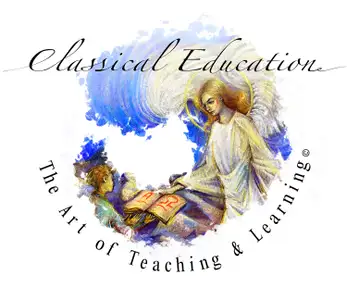Teaching Math Like Socrates: Engaging Students as Mathematicians
Adrienne and Trae interview two master teachers in mathematics from Long-View Micro School in Austin, Texas. While Long-View is a progressive school, they have discovered the truth of dialectis in the classroom. While they do not formally consider their methods as classical, and their terminology may be different than common terms in classical education, they truly embrace the art teaching math dialectically.
About our Guests
Kevin Moore is an experienced educator of young learners as well as a respected instructional leader. Presently, Kevin's attention and energies are consumed by two ventures of which he is a Co-Founder, Long-View Micro-School and The Number Lab. Long-View Micro School is a STEM focused, highly innovative, learner-centered educational environment thoughtfully designed for upper elementary and middle-school-aged learners. Through his work at Long-View, Kevin is committed to impacting the educational landscape locally by adding to the diversity of schooling options for families in Austin Texas. In his work with The Number Lab, Kevin helps to design and facilitate professional development seminars for teachers who provide mathematics instruction to young learners. These seminars are meant to help teachers strengthen their own conceptual understandings of mathematics and inspire a culture of learning in their classrooms that engages learners as mathematicians. Kevin’s work with The Number Lab connects him with educators throughout the United States and beyond.
Kaylie White is an experienced educator at Long-View Learning, where she strives to transform mathematics education by working with both young learners and educators from across the country. Kaylie designs and leads learning experiences for young mathematicians at Long-View Micro School — a STEM-focused, highly innovative, learner-centered educational environment designed for upper elementary and middle-school-aged learners. Through Long-View’s teacher-facing work, Kaylie creates and facilitates professional development for teachers, including in-person workshops, Field Study Days at Long-View Micro School, and virtual coaching. She also leads the social media marketing for Long-View Learning. Kaylie is a bold, creative, and passionate educator who sees herself as a learner first. She eagerly works to collaborate with her team to continuously iterate and improve the learning experience for all. When she is not teaching and learning, Kaylie enjoys time with her husband and one-year-old son in Austin, Texas where they cook, hike, read, play soccer, and cheer on Austin FC.
School’s instagram: long_view_atx
Website: long-view.com
Professional Development from The Number Lab (Long-View Team)
Find Support from the team at
https://www.long-view-learning.com/
Show Notes
Adrienne and Trae interview two master teachers in mathematics from Long- View Micro School in Austin, Texas. While Long-View is a progressive school, they have discovered the truth of dialectis in the classroom. While they do not formally consider their methods as classical, and their terminology may be different than common terms in classical education, they truly embrace the art teaching math dialectically.
Teaching math is not about state standards or facts and formulas to memorize, but rather it is a discipline that is engaging, interesting, and helps students learn thinking and communication skills which are common to the goals of classical education.
Some topics in this episode include:
Teaching math is not about state standards or facts and formulas to memorize, but rather it is a discipline that is engaging, interesting, and helps students learn thinking and communication skills which are common to the goals of classical education.
Some topics in this episode include:
- The high abilities of children to wrestle with big ideas and participate in deep and meaningful work
- The importance of a healthy community of learners with teachers as facilitators who will challenge and mediate students through meaningful ideas
- Children need opportunities to grapple with complex ideas so that they can learn the art of dialectics (Longview school is not classical and does not call it the art of dialectics, but that is inadvertently what is being discussed).
- Real understanding emerges from the messiness of learning how to be precise with good language, with communication, and with tapping into creative ways of solving problems.
- Setting a school culture where learning is a process that everyone does together.
.
Books & Resources In This Episode
A Mathematician's Lament: How School Cheats Us Out of Our Most Fascinating and Imaginative Art Form by Paul Lockhart and Keith Devlin
A Mathematician's Lament: How School Cheats Us Out of Our Most Fascinating and Imaginative Art Form by Paul Lockhart and Keith Devlin
Visilbe Learning by John Hattie
Daring Greatly by Brené Brown
Learner-Centered Teaching by Maryellen Weimer
Sound Engineer: Andrew Helsel
Logo Art: Anastasiya CF
Music: Vivaldi's Concerto for 2 Violins in B flat major, RV529 : Lana Trotovsek, violin Sreten Krstic, violin with Chamber Orchestra of Slovenian Philharmonic
© 2022 Beautiful Teaching. All Rights Reserved

